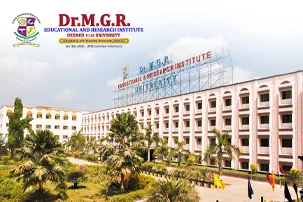According to a study by the Bureau of Labor Statistics, the demand for supply chain professionals is expected to grow by 30% in the current decade. On the other hand, business operations managers’ demand is also expected to skyrocket.
Although both fields have promising futures, don’t they two seem similar to one another? The two, however, differ significantly from one another. This blog post will explain what they are and how to become a supply chain or operations manager.
So, let’s get started.
What is Supply Chain Management?
Supply Chain Management is the process of collecting the materials to produce the goods and delivering them to the customers. It also involves coordinating with key participants, suppliers, logistic teams, and customers. Besides, the roles and responsibilities also consist of overseeing suppliers, purchasing orders, prediction, and warehouse management.
Supply chain managers should also consider risk evaluation and security. In today’s age, cybersecurity in supply chain management is in demand. Moreover, supply chain managers should also focus on analysing suppliers and their protocols. Adding to this, they should also predict demand, enhance customer service, and communicate with other departments of the business for the same
The importance of supply chain management reflects in the:
- Reduction of cost
- Improvement in efficiency
- Inventory evaluation
- Better service to customers
- Prompt deliveries
- Updated to market demands
What is Operation Management?
Operation management is all about maintaining, planning for materials, and evaluating the production process. The job role also includes running a business effectively and efficiently. Operation managers also contribute to product development.
Operation managers should be well-acquainted with modern-age concepts, such as Lean and Agile methodology. Both concepts help in the reduction of wastage and improvement in efficiency.
Operations managers also have to predict the demand, be communicative to get the work done, and ensure that all the customers’ demands are fulfilled with quality and on time.
Now that you know what supply chain and operation management are let’s see how these two terms are different from each other.
What is the difference between Supply Chain & Operations Management?
| Supply Chain Management | Operations Management |
| Focuses on supply activities of goods and services. | Focuses on operation management or departmental functions. |
| Takes care of external factors of the business, such as materials, deliveries, and locations. | Take care of what is going on inside the company. |
| Ensures deliveries of the produced product. | Ensures production processes. |
| Supply chain managers evaluate and get the background check of the suppliers. | Planning, managing, and organizing is where operations managers are involved in. |
| Even supply chain managers are involved in planning, designing, executing, controlling, and monitoring all the supply chain activities. | With improvement as a focus, most of the time is spent on planning, organizing, and supervising the tasks. |
| Supply chain management tools include warehouse management, lean inventory, and demand forecast. | Operation management includes six sigma, result template, and lean. |
| Supply chain benefits include a decrease in overhead expenses, good cash flow to the business, improved risk mitigation techniques, and enhancement in quality. | Operation management includes increased revenue levels, highly motivated employees, improved customer experience, and increased satisfied customers and product quality. |
| Maximize the value generated, enhance performance, and maintain inventory. | Maximum utilization of resources to create goods and services and better production of goods. |
So, this is the basic difference between supply chain and operation management. To get a job in a demanding area, you need an educational qualification for the same.If you have made up your mind, then here is every single detail about how to get the business analytics course in India at affordable fees and without leaving your current job.
PG Certification Programme in Business Analytics & Applications
Programme Eligibility
- Graduate Degree with 50% from a recognized university
- Minimum 1 year of work experience
Program Duration
- 9-Months (45 Weeks)
Program Highlights
- Hybrid learning (Online and Offline Module)
- 3 Days of Immersion
- 170+ Hours of Interactive Learning
Conclusion
Both the verticals are quite different and demanding, so if you are planning to switch, answer this question; are you looking to manage external sources or want to work internally? If you answer this question, you are halfway through selecting the career option.
If you think you can cope with the global markets, quality control, and logistics, supply chain management is suitable. Contrary to this, if you are excellent in production, planning, workflows, and staffing, then you can make a bright future in operations management. Choose your career wisely.






